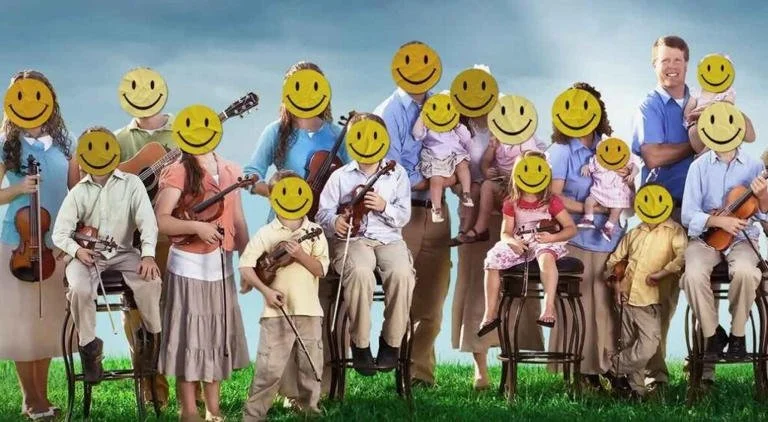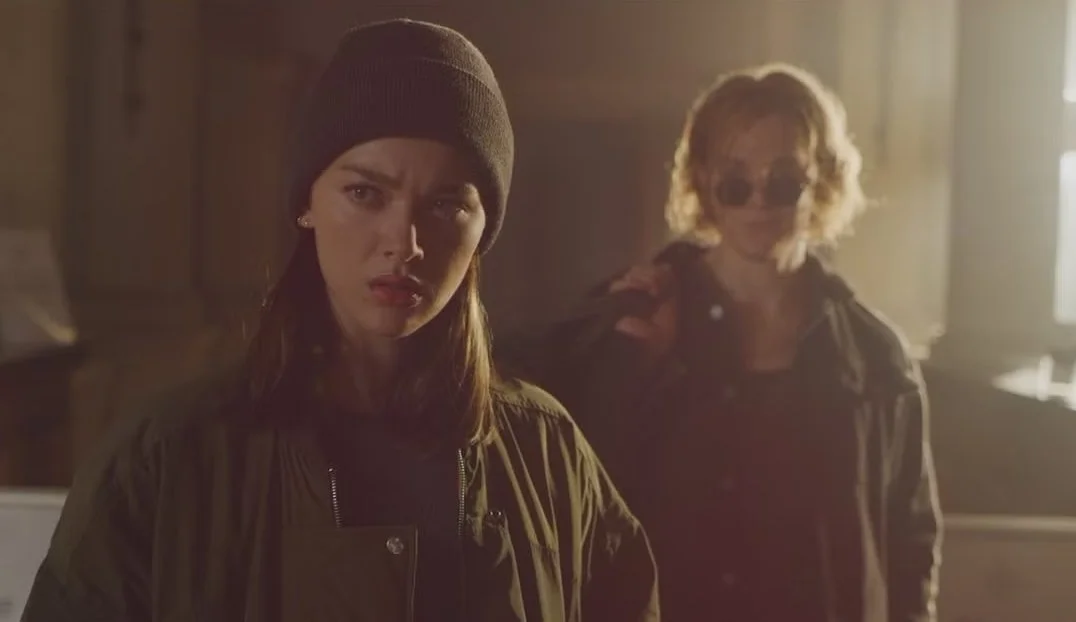(REVIEW) “Squid Game” is a series that’s no stranger when it comes to weaving religious imagery into its narrative. Season 3 culminates that thread with both subtle and striking references, particularly when it comes to Christian symbolism. The season, it turns out, is more parable than sermon. The six episodes that form the final season are bloodier than ever.
Read MoreThe director’s most recent film, “The Phoenician Scheme.” very explicitly affirms faith. This is all the more surprising because his previous film was one of the most moving anti-faith films of the past 20 years. What explains this? Why did Anderson change his portrayal of faith so radically between his last film and his latest one?
Read MoreSeason Two of the hit TV docuseries “Shiny Happy People” will focus on now-defunct Dallas-based youth ministry Teen Mania and founder Ron Luce, Amazon Prime Video announced Wednesday. Premiering July 23, the three-episode season will expose the early-2000s evangelical teen pop culture phenomenon.
Read More(REVIEW) Zombies resemble humans without retaining anything about our distinct personalities or relationships also have a visceral ability to articulate our fear of the end. Death is an ever-present fact of life, so symbols of death, like skulls or the Grim Reaper, are natural. This is particularly true during times when religious symbols of death and what comes after (like the Christian cross) appear to be out of style.
Read More(ANALYSIS) If we agree that on-screen depictions of Jesus that add things to Scripture aren’t automatically evil, then “The Chosen” actually comes out seeming like something of a miracle. It sticks pretty darn close to Scripture when it comes to Jesus’ own words and actions, mostly developing other characters. And what it does add to Jesus’ words is within the realm of typical Christian orthodoxy.
Read More(REVIEW) When it comes to U2, perhaps the only thing harder to find than a nuanced opinion of them is an accurate portrayal of their faith. It was a shock to some that the Dublin-based band — who became big in the 1980s — refused to be pigeonholed as apologists for Irish nationalism. Anyone who looks at their religious makeup shouldn’t have been surprised.
Read More(ANALYSIS) Once again, I need to apologize to the unknown — and search-engine invisible — person who created a quote that I want to share. I admit that there is some chance that I created the quote, but it sounds way too literate to have been created by yours truly.
Read More(REVIEW) Benjamin Franklin famously once said, “In life, nothing is certain but death and taxes.” Death is one of those things that the religious and non-religious have in common. It forces both to contemplate how to find meaning in life. Religious people have had the advantage in this regard, as the idea of eternal life is more appealing for people than the alternative.
Read More(REVIEW) “The Ritual” is a movie you’ve seen many times before. But the story is clearly powerful enough that it is worth retelling. Hopefully, filmmakers will start figuring out how to tell these stories in new and different ways. In the meantime, we have movies like “The Ritual” and can always rewatch a classic such as “The Exorcist” again.
Read MoreWhen you think about Jewish contributions to the world of entertainment, your mind probably immediately goes to comedies, sci-fi and musicals. But there’s another genre rich with Jewish history: Westerns. In the new book “Chai Noon: Jews and the Cinematic Wild West,” scholar Jonathan Friedmann examines Jewish figures and themes in Western film, dating back to Hollywood’s first feature-length film. “The Squaw Man,” released in 1914.
Read More(REVIEW) The film does fall into some contrived tropes. It’s never really adequately explained why they don’t initially try to get donations for the surgery (or help from Joe’s super-rich friend). But it doesn’t lean as far into these as most do, and the authenticity of how the characters behave in these situations makes up for it. “The Last Rodeo” is the best Angel Studios movie to date and one of the better faith-based industry films ever made.
Read MorePhil Robertson, who gained national fame as the bearded, camouflage-clad Duck Commander, “has gone to be with Jesus,” his Louisiana church family confirmed. The reality TV star and Bible teacher — known for leading hundreds, if not thousands, of souls to Christ — died this past Sunday at age 79. His family had revealed last year that Robertson faced early-stage Alzheimer’s and other health problems.
Read More(REVIEW) While “Bad Shabbos” is very funny, little about it really breaks new ground, as it primarily leans on the classic tropes and themes of a Jewish “meet the parents” comedy. The movie also has some tonal awkwardness between the relatively grounded characters and dialogue mixed with its rather unbelievable farcical premise and series of escalating decisions.
Read MoreSuper-intelligent computers that go bad isn’t a new concept, as fans of the “Terminator” franchise know all to well. However, when I think about digital evil, I remember the haunting voice of the HAL 9000 supercomputer in 1968 sci-fi classic “2001: A Space Odyssey.” Think about this: That was a voice that Sir Anthony Hopkins heard in his head as he prepared to play the brilliant serial killer Hannibal Lecter in “The Silence of the Lambs.”
Read More"The Damned" is a film that focuses on the human element of war, particularly faith and individual stories, during the Civil War. Unlike many modern war films, it connects viewers with characters through their personal beliefs and struggles. Director Roberto Minervini used nonprofessional actors and improvisation to create an authentic experience.
Read More(REVIEW) “Fallen,” the love story of a girl loved by a fallen angel, has been adapted to the screen twice since the original book was released in 2009. Its most recent adaptation to television, an eight-episode season now streaming on AMC+, suggests a more negative view of religion that’s developed over the past decade — and it’s worse off narratively for not embracing the original story’s theology.
Read More(REVIEW) If words like “radio silent,” “compound” and “too good to be true” didn’t give it away. In the cult setting, “Opus” explores celebrity worship, creativity, culture as a mouthpiece of movements and the public fascination with true crime. It explains all the reasons why we love consuming cult content — it’s just ultimately an unfulfilling watch on its own.
Read More(REVIEW) “Shadow of God” is stuck between several different possible movies and doesn’t commit to any of them effectively. It could have been an entertainingly self-aware exorcism movie, but it has too few scenes where it embraces that winking glee for the cliches. It could have subverted the cliches with its own original ideas. Even if its ideas weren’t original it could have made up for it with thoughtful and nuanced dialogue to explore familiar ground.
Read More(REVIEW) Data shows that organized religion is better for society than disorganized spirituality. Whether it’s mental health, building social bonds, fighting toxic masculinity, creating safety nets to avoid poverty or creating social change (just remember the Black church’s important role in pushing forward civil rights), there’s no doubt that the house of worship has more power than cloves of garlic to ward off the evils that plague us.
Read More(ANALYSIS) While the Thai Buddhism depicted in “The White Lotus” is not completely realistic, there are several authentic ways to engage deeply with Buddhism, ranging from offering donations to short meditation retreats to ordination as a monastic. The series depicts an American woman who is interested in joining a yearlong meditation program at a temple, even though they do not offer such programs.
Read More



















